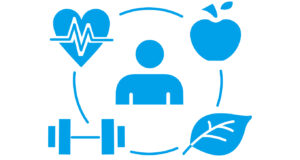-
Case Management Practice

Whole-Person Case Management Practice
BY HUSSEIN M. TAHAN, PhD, RN, FAAN, FCM Whole-person case management has emerged as an essential practice paradigm in contemporary…
-
Case Management Practice

Integrated Case Management in the Acute Hospital Setting
BY LISA SIMMONS-FIELDS, DNP, MSA, RN, CCM, CPHQ, FCM Integrated Case Management (ICM) ensures patients and families receive excellent coordinated…
-
Association News

Building Tomorrow Through Case Management Excellence
As healthcare continues to evolve, case managers are uniquely positioned to shape what comes next.
-
Past President's Corner

Voices of Leadership: Reflections From Past Presidents
BY MINDY OWEN, RN, CRRN, CCM, FCM When I reflect on the time CMSA was more of an idea than reality, it…
-
Case Management Practice

Standard M: Facilitation, Coordination, and Collaboration
BY ELAINE BRUNER, MSN, RN, CMGT-BC, FCM Seamless, smooth transitions of care are imperative in case management practice. The professional case…
-
Case Management Practice

Reclaiming the “I” In Case Management: Unveiling Professional Identity Across the Discipline
BY DR. COLLEEN MORLEY, DNP, RN, CCM, CMAC, CMGT-BC, CMCN, ACM-RN, FCM, FAACM; DR. ELLEN FINK-SAMNICK, DBH, MSW, LCSW, ACSW, CCM, CCTP,…
-
Behavioral Health

Adolescents and Pet Therapy
BY MICHELLE BRUSIO, MSN, RN, CCM Pet therapy is a great way to give comfort, support, and companionship. But did you…



